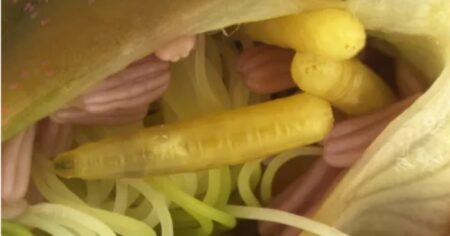The Iowa Department of Agriculture and Land Stewardship announced on Friday that it had “depopulated” the birds from Pure Prairie Poultry Inc.
The poultry processor had informed the department of its inability to purchase feed for its 1.3 million broiler chickens, leading to the closure of its processing plant in Charles City. Fearing for the welfare of the animals, the department intervened on October 2, taking control of the care and custody of the chickens located across 13 Iowa farms.
On the same day, Pure Prairie Poultry shut down its Charles City facility and laid off its employees.
Pure Prairie Poultry received $45.6 million from the U.S. Department of Agriculture in 2022 to expand its processing plant, which was celebrated during a ribbon-cutting ceremony by Iowa’s USDA Rural Development office in July 2024. Two months later, the company’s bankruptcy left numerous contract farmers and over 1 million chickens without support.
Iowa Secretary of Agriculture Mike Naig addressed the ongoing situation, stating, “This is an incredibly unfortunate situation and raises serious questions about the U.S. Department of Agriculture’s oversight of taxpayer dollars. Congress should exercise its oversight authority to ensure that something like this does not happen again and that those responsible are held accountable.”
A spokesperson with the USDA also explained to the Iowa Capital Dispatch that the investment in the Charles City plant was made to support a local bank’s efforts to reopen the facility “for the benefit of farmers, workers, and the Charles City community.” The statement added that, “Rather than trying to deflect attention away from a decision he made, Secretary Naig could instead work constructively with USDA, creditors, and the Charles City community to find a way to reopen the plant to preserve an important processing option for Iowa, Minnesota, and Wisconsin farmers.”
The spokesperson noted that the USDA is actively searching for ways to reopen the plant and has worked closely with state agriculture departments through federal programs to assist growers affected by the situation.
Following the company’s collapse, the Iowa Department of Agriculture says they actively sought alternative processors and buyers for the chickens. They nearly secured a sale for all 1.3 million birds, but lien claims from other interested parties complicated the deal, ultimately causing the buyer to withdraw.
In an October 8 court hearing, the judge granted additional time to seek a solution, but despite extensive efforts, no viable options emerged. The court eventually authorized the humane depopulation of the chickens, with the oldest birds processed first.
Depopulation began on October 17, utilizing methods approved by the American Veterinary Medical Association and overseen by licensed veterinarians. The process concluded on October 25, with each farm using composting to dispose of the birds. The Department has committed to pursuing financial recovery for taxpayer funds spent during this crisis.
The incident has drawn criticism from animal rights organizations, including PETA, which pointed to the USDA’s financial involvement with Pure Prairie as indicative of oversight failures. In light of the situation, Iowa agriculture officials have emphasized their extensive efforts to care for the animals and secure processing options.


:max_bytes(150000):strip_icc()/a-case-of-bird-flu-in-a-missouri-resident-is-the-only-diagnosis-in-the-united-states-this-year-where-the-person-did-not-have-contact-with-infected-dairy-cattle-or-poultry-photo-by-stephen-ausmus-animal-research-services-usda--7c1d7d4efa6b462ea385a2d18133ecbf.jpg)
:max_bytes(150000):strip_icc()/Congress-WideShot-2000-5a91ee8f6de542dfa39fc245aef88653.jpg)
:max_bytes(150000):strip_icc()/170922-4-2000-4834775372984ffebde18f6186834c2d.jpg)


:max_bytes(150000):strip_icc()/Soybeans-WormsEye_0-2000-4afb8f4a21ee4a21a0abcd19ccd4272d.jpg)
:max_bytes(150000):strip_icc()/GettyImages-1230443499-cd9bc00947124ee2a91459ec874bf886.jpg)
